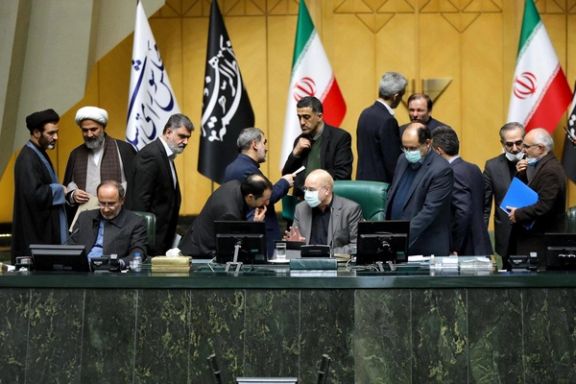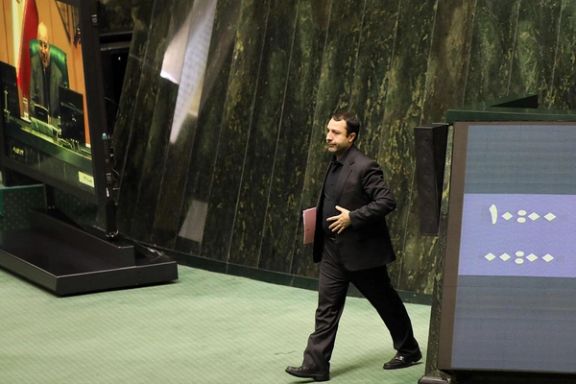Lawmakers Deflecting Blame, Slam Government For Iran’s Falling Currency

Amid ongoing antigovernment protests, the Islamic Republic’s currency rial has been on freefall, losing value so much that regime’s insiders have started passing the buck.

Amid ongoing antigovernment protests, the Islamic Republic’s currency rial has been on freefall, losing value so much that regime’s insiders have started passing the buck.
Iran’s currency dropped to a new historic low on Sunday, breaking the 410,000 rial resistance point against the US dollar, prompting some parliament members to blame the presidential administration of Ebrahim Riaisi for the economic blow.
Parliament’s Sunday session was held behind closed doors when lawmakers, particularly members of the economic committee, briefed the parliament about the falling rial as well as the high rate of inflation. The explanations by the head of the Central Bank of Iran (CBI), Ali Salehabadi, and Ehsan Khandouzi, the minister of economic and financial affairs, were also delivered before the reporters were allowed to enter.
Mehdi Toghiani, the spokesman of the economic committee, said that one of the main reasons behind the rial’s unprecedented fall is the government’s insistence on ineffective policies, and especially the "mandatory determination of the exchange rate" and "increasing the money supply."
The parliament stacked with hardliners rarely criticizes the like-minded government, but as the crisis has rattled the public amid antigovernment protests, lawmakers tried to deflect blame from the legislature. Economists have long been warning of an impending meltdown, as the regime has failed to resolve its nuclear dispute with the United States, which maintains crippling sanctions on Iran.

Another lawmaker, Rouhollah Izadkhah slammed the 50-percent devaluation of the rial during the current administration, noting that the high demand for foreign currencies should not lead to higher prices for essential goods.
“The national currency of war-torn Syria is eight times higher than Iran’s because it has managed the unofficial (free) market,” he argued.
“The currency market is very turbulent and chaotic, and there is no clear prospect in the horizon, and it is not clear when the exchange rate will be recovered,” said another MP, Kamal Hosseinpour.
"What kind of sustainable economy the minister is talking about," he quipped, criticizing the ministry’s actions – or lack of action – in the currency market. “You cannot blame the enemy for all the problems of the country. What is the plan of the economic team of the government?” he said, urging President Ebrahim Raisi to intervene and introduce measures to control the prices.
Iran has been rocked by nationwide antigovernment protests since mid-September after a 22-year-old woman, Mahsa (Zhina) Amini, was killed in police custody. She was arrested for violating the country’s forced hijab rules. But since then, protests have turned against the ruling regime, with many Iranians demanding a secular and democratic form of government.
Opponents of the Islamic Republic have also urged people to withdraw their deposits from government banks to put further pressure on the government, which has been printing more money in recent years. The money supply has grown at an unprecedented pace since September.